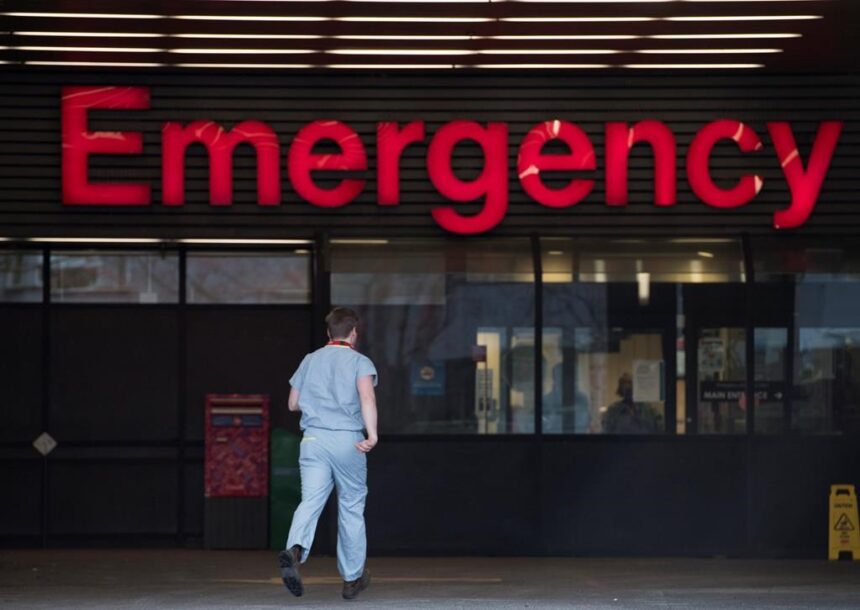The phone’s been ringing off the hook at the BC Conservative government’s controversial healthcare whistleblower hotline, with over 800 reports flooding in during its first month of operation – far exceeding what Health Minister Mike Bernier anticipated when launching the initiative in late May.
“We expected maybe a hundred calls in the initial weeks,” Bernier told me during an interview at his Victoria office. “The volume tells us there’s clearly a need for healthcare workers to safely report issues they’re witnessing on the frontlines.”
The hotline, a key campaign promise from Premier John Rustad’s successful election bid, allows healthcare professionals to anonymously report inefficiencies, mismanagement, or patient safety concerns without fear of workplace reprisal. But the initiative has sparked fierce debate across BC’s medical community.
Dr. Kathleen Ross, president of Doctors of BC, expressed cautious optimism about the program’s intent while raising concerns about its implementation. “Physicians absolutely support transparency and accountability,” she said. “But this approach risks undermining existing quality improvement structures that hospitals have carefully developed over decades.”
The hotline logged 823 reports between May 25 and June 22, according to data provided by the Ministry of Health. Complaints range from staffing shortages to procurement waste, with approximately 40% coming from nurses, 22% from administrative staff, and 15% from physicians.
At Royal Columbian Hospital in New Westminster, critical care nurse Jana Phillips views the hotline as a necessary option. “I’ve tried raising concerns through proper channels for three years about dangerous patient-to-nurse ratios in our ICU,” Phillips explained during a coffee break. “Nothing changed. Maybe now someone will listen.”
The BC Nurses’ Union initially criticized the hotline as a “political stunt” but has softened its stance as members increasingly utilize the service. BCNU President Adriane Gear acknowledges the tension, noting that “while we prefer collaborative approaches to system improvement, our members deserve every avenue available to advocate for patient safety.”
Ministry officials confirm that all reports undergo screening by a third-party contractor before being categorized by severity and urgency. Critical safety concerns trigger immediate notification to appropriate health authorities, while systemic issues are compiled into weekly briefings for the minister.
The initiative’s $2.8 million annual budget has drawn scrutiny from opposition MLAs, with BC NDP health critic Adrian Dix questioning whether the investment could be better directed toward frontline services. “We’re spending millions on a complaint box when we could hire dozens of nurses with that same funding,” Dix argued during question period last week.
At Vancouver General Hospital’s busy emergency department, opinions among staff remain divided. “I worry about how these anonymous complaints will be verified,” said Dr. Rajiv Sharma, an emergency physician with 15 years’ experience. “Are we creating a system where unsubstantiated claims could damage reputations or worsen workplace morale?”
Yet at a seniors’ centre in Burnaby, where I spoke with patients about the initiative, many expressed support. “If healthcare workers see problems that affect my care, I want them speaking up,” said 72-year-old Margaret Chen, who’s undergone three surgeries in BC hospitals over the past decade. “Someone needs to be listening to the people on the ground.”
Early data suggests hotline reports cluster around several recurring themes: unsafe staffing levels (31%), administrative inefficiencies (26%), equipment shortages (19%), and concerns about management decisions (14%). The remaining 10% span various issues from facility maintenance to workplace culture concerns.
Public health researcher Dr. Emily Carpenter from UBC’s School of Population and Public Health sees potential value in the anonymized data. “If properly analyzed, these reports could identify system-wide patterns that individual facilities might miss,” she told me. “The challenge will be distinguishing between isolated incidents and truly systemic problems.”
The Ministry plans to publish quarterly summary reports beginning in September, though details remain unclear about how specific the public disclosures will be. When pressed about transparency, Minister Bernier committed to “meaningful reporting that respects confidentiality while demonstrating accountability for addressing identified issues.”
For healthcare policy experts like Michael Davidson at Simon Fraser University, the real test comes in the response, not just the reporting. “Collecting complaints is relatively easy,” Davidson explained. “The hard part is implementing effective solutions, especially in a system as complex and resource-constrained as healthcare.”
Healthcare unions remain concerned about potential workplace consequences despite anonymity promises. Internal documents obtained through freedom of information requests reveal that health authority executives expressed reservations about the hotline creating a “culture of suspicion” within healthcare teams.
As we approach Canada Day weekend, when emergency departments typically face increased pressure, ministry officials plan to add additional staff to monitor hotline reports. The true measure of the program’s success, however, won’t be call volume but whether it drives meaningful improvements in a healthcare system still recovering from pandemic-era strains.
Whatever side of the debate one falls on, one thing is clear: BC’s healthcare workers have plenty to say, and they’re picking up the phone to say it.






